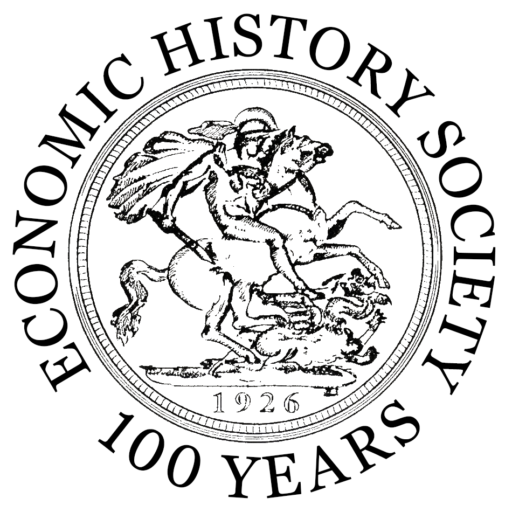Decolonising development with Ifá tradition
In this post Luqma Temitayo Onikosi of the University of Brighton discusses their ongoing research, supported by the EHS Research Fund for Graduate Students.
—
About my research
Financial Inclusion in Ifá Oral Literature.
Before delving deeper into financial inclusion within the Ifá tradition, it is important to explain that, in recent years, financial inclusion has permeated nearly every aspect of development discourse. It is widely promoted as an innovative financial strategy, often portrayed as a silver bullet for eradicating poverty. In this regard, financial inclusion has been championed as a key enabler for many of the Sustainable Development Goals (SDGs), positioned to target eight of the seventeen goals. More widely, through greater mobilisation of investment and consumption, there is an implicit role for financial inclusion to spur economic growth.
In my thesis, I argue that whilst the terminology of financial inclusion emerged in development practice in the early 2000s, it is not a uniquely modern and recent socio-economic phenomenon in Nigeria. A vibrant financial economic institution in Yorùbáland in Southwest Nigeria was in existence in the pre-colonial era, rooted in Ifá traditional ideas of mutual obligations between the community and the self. Dating back at least to the 16th century, it catered for saving and credit needs. Key financial instruments for savings and credit employed in pre-colonial Yorubaland were Ajo, a savings institution and Esusu, a rotating savings and credit. Despite their contemporary prevalence and continued success, these traditional institutions remain part of an informal financial economy sector, with the Nigerian government pursuing financial inclusion policies based on international models such as microfinance programs.
What is Ifá Oral Literature?
Ifá, as a religion, is inclusive, especially in its hierarchy. The diviners in Ifá religion are either male, called Babalawo (father of secrecy), or female, called Ìyánífá (mother who has Ifá). Both are the custodians of the Ifá divinatory system and body of knowledge. They do not have to possess or rely on a special “oracular power”. Would-be diviners will instead have to possess or depend on a body of knowledge, which he or she has acquired through several years of intensive training, apprenticeship, and initiation ceremony on how to read the system of signs.
Ifá is the great consulting oracle in the Yorùbá country. The words of divination which are issued from the mouth of Ọ̀rúnmìla are called Ifá. Ọ̀rúnmìlà, a revered Òrìṣhà, is considered the patron and guardian of Ifá divination. Ọ̀rúnmìlà communicates through his Ifá with Olódùmarè (Yorùbá supreme God) on behalf of human beings. Therefore, Ifá is the medium of Ọ̀rúnmìlà; it is a link between the world of the spirit and the living.
The Yorùbá people regard Ifá as the great authority on their mythology, history, ontology and epistemology. Sophie Oluwole (2004) further argued that if Ifá is understood as a “computerised compendium” of the Yorùbá people’s perspectives on the diverse aspects of nature and human existence, then it should rightfully be regarded as the “classical philosophy” of the Yorùbá.
Contributing to the wider project of decolonising development, my contention is that indigenous financial institutions, such as the Yorùbá people’s concept of financial inclusion rooted in Ifá episteme, offer a rich decolonial option for socio-economic policy making in development.
My background
I am currently pursuing my PhD at the University of Brighton without any external funding. Completing this research is not only deeply important to me on a personal level, but I also believe it represents a valuable contribution to the field and will offer a fresh perspective on Nigerian economic development beyond historical narratives.
As an underprivileged and disabled Black student with a Nigerian background pursuing a PhD in Humanities in the UK, financial constraints have been a persistent challenge throughout my academic journey. Balancing the rigorous demands of doctoral research with the ongoing anxiety of not having secured funding for living expenses, with no supplementary income to support my doctoral field research costs and while receiving no funding for tuition fees, has placed immense pressure on my ability to focus and progress effectively. Despite these obstacles, my commitment to producing meaningful scholarship remains unwavering.
The support from the Economic History Society’s Research Fund for Graduate Students to meet the cost of my expenses, especially the cost of transcribing my data from the fieldwork, has been transformative for my research and overall academic experience. It has alleviated the constant financial strain, allowing me to dedicate myself fully to completing the data analysis in my thesis without the distractions of financial insecurity. With this grant, I can reorientate my limited, personal financial resources to cover my living costs, such as being able to pay the costs of my outstanding electricity bill, ensuring that I can work effectively and comfortably. By enabling me to complete my PhD, this grant will contribute to greater diversity and representation in my field, development economics. By supporting my research, the Economic History Society is investing in a scholar committed to amplifying historically underrepresented perspectives. I am determined to make a meaningful academic contribution, and this grant will be instrumental in ensuring that my work reaches its fullest potential.
To contact the author:
Luqma Temitayo Onikosi
L.onikosi@brighton.ac.uk
University of Brighton

